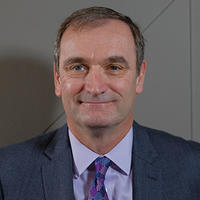Payment infrastructures are undergoing great change across the globe, with the implementation of instant retail payments rails and modernisation of real-time gross settlement systems. Innovation is also driving change in the cross-border payments space. The Banker’s Leadership series, in association with SWIFT, explores how the financial industry is working together to construct the future of payments and provide a strong platform for innovation.
Three themes are driving fundamental changes to payments infrastructures globally, creating opportunities – and challenges – for banks and their customers. Technology innovation, greater competition and the need for increased security and safety in payments have spawned myriad infrastructure renewal programmes across the world.
“It is an exciting time for payments,” says Victoria Cleland, executive director for banking, payments and innovation at the Bank of England (BoE). The UK central bank is renewing its real-time gross settlement (RTGS) system to reflect changes in technology, customer demand and the regulatory landscape.
The BoE is not alone in renewing its infrastructure – projects have been completed or are underway in many countries, including Australia, the US, Canada and the European Union, where the European Central Bank is overhauling the Target system.
While the BoE is creating a more resilient infrastructure, it is also looking for ways to increase innovation, says Ms Cleland. Such innovation includes introducing non-banks to the RTGS system to encourage competition and innovation, increasing interoperability by using the ISO 20022 messaging standard and improving user functionality via application programming interfaces (APIs). The bank is “grasping the opportunity to go way beyond the resilience angle”, she adds, and sees the core infrastructure as “an enabler” for innovation.
Alongside the changes to the wholesale payments environment in the UK, retail payments authority Pay.UK is building on the successful introduction of Faster Payments more than a decade ago. Pay.UK’s CEO Paul Horlock says creating a new clearing and settlement layer for the retail payment industry, known as the New Payments Architecture, will give participants the chance to create new products and overlay services. Such services are already coming to market, he says, and “our job is to help guide the payments ecosystem to safe outcomes that allow new innovations to flourish”.
Such infrastructure initiatives are further enabling the digital economy, and new business models based on partnerships are rapidly evolving. Marco Hughes, head of core payments, global liquidity and cash management, HSBC, says renewal projects, along with the development of real-time payments platforms, are helping to digitise payments and receivables across the world. Financial regulators view this as a significant benefit to the economy of a country, he says. “For our customers, getting paid instantly massively improves their efficiency.”
Importantly, innovation is also happening in the cross-border payments space. Historically this has been a difficult challenge to solve, in part due to complex manual processes and multiple disparate payment standards. For example, Mr Hughes highlights how SWIFT gpi provides transparency in cross-border payments with its unique end-to-end transaction reference. “Over 97% of HSBC’s payments are now gpi-enabled, which allows us to track payments in over 100 currencies and quickly rectify any issues,” he says. “SWIFT gpi has been transformational for us.”
Collaboration to the fore
Forging new partnerships is a way to address some of the challenges associated with the rapidly evolving payments environment, according to Andrew Smith, chief technology officer, ClearBank and RTGS.global. He says, “There is so much talk about new architectures, omni-channels and customer outcomes, but there is only a limited amount of cash to go around, so where do we want to spend our ‘dev dollars’? Banks need to specialise and with specialisation comes partnerships.”
He points to ClearBank’s partnerships with Tide and Nationwide for Business as examples of a “real collaborative effort to make an impact in the market and deliver different customer outcomes”.
Simon Eacott, head of payments innovation and business development, NatWest, agrees, adding that banks must recognise they can’t be “all things to all people” and that working in collaboration with fintechs will result in innovative customer propositions. “We work with many fintechs to develop propositions, very much on a partnership basis,” he adds.
Collaboration is evident not only in the development of products, but also in solving the challenges the industry faces. The BOE and Pay.UK are working together on information sharing and the harmonisation of messaging standards across retail and wholesale payments.
Mr Horlock says, “The challenge for us is to make sure that the structure of the message evolves with what the market wants, coming from a secure centre that we can then deliver reasonably quickly through agile developments.” He adds that the opportunities ISO 20022 messaging presents in terms of interoperability and richer data will feed into innovations based on artificial intelligence, for example, such as fraud screening.
Standards and interoperability
Globally, the migration by payments infrastructures to ISO 20022 is fundamental for the future of payments, says Vikesh Patel, head of UK and Ireland at SWIFT. The standard provides the “building blocks” for enriched and structured data sets and interoperability. He says, “The ability for data to be transmitted across borders and within a market, in a way that people can interpret the data and know the business function behind each data element, will be fundamental as we move towards instant payments schemes being more universally adopted. It will also allow for more overlay services.”
If every payment scheme being rolled out around the world was the same, it would be “very advantageous” to a global bank like HSBC, according to Mr Hughes. “Standardisation helps not just us but also fintechs, the big tech companies and all payment providers. It removes cost from the system and makes it easier for tech companies to support innovation by providing platforms that are cheaper to use,” he says.
Mr Smith agrees, adding that standards should be viewed as a framework that provides “wiggle room” for developers to innovate “very quickly”. If the industry focuses on gaining agreement on what a standard looks like upfront, there is a danger that the technology moves on and the industry must play “catch up”. Describing himself as a realist, Mr Smith does not think he will see complete standardisation within his lifetime. “But with a general framework and data dictionaries, you can start solving the interoperability problem. If the industry focuses too much on standardisation, we’ll get bogged down in the governance process,” he says.
According to Mr Patel, SWIFT’s four-year coexistence period during the industry’s migration to ISO 20022 standards recognises these challenges and the length of time it will take. “We have to stay focused on the advantages that the move to ISO 20022 will bring,” he adds. “We need to get the implementation of ISO 20022 right to enable all of the positive benefits it brings to develop.”
Secure, resilient and 24x7
The changes taking place at the infrastructure level require banks to respond in a short time, while maintaining resilience “all the way through”, says Mr Eacott. However, he says, “we also recognise this is a once in a generation opportunity to really make a step-change in the industry and this does allow us, whether it is by standardisation or renewal of the infrastructure, to drive out costs and to drive new product positions. We intend to take that opportunity.”
Both Ms Cleland and Mr Horlock are intently focused on the question of end-to-end resiliency across the whole ecosystem. Mr Horlock says, “It is something we worry about every day, as the key payment systems need to be robust and resilient at all times. So we are obsessed with making sure we move from where we are today to the future in a way that is seamless and secure and consumers can rely on the systems every day.”
Likewise, Mr Patel emphasises that innovative products and services must be rolled out on resilient, safe and secure platforms, “SWIFT spends a lot of time investing in resiliency and how that can be deployed in our products and services. People will only come back and use the platform if it is built on such a resilient core.” Mr Smith agrees: “You need to eat, sleep and breathe security, availability and performance. That is actually what resilience comes down to.”
The future
Mr Hughes concurs with Ms Cleland that it is an exciting time in payments and points to numerous innovations based on real-time payments, notably in China and India. “There are many cases where cash is taken out of the transaction cycle, which drives a massive efficiency increase for our clients, as well as use cases to do things that they would not have been able to do otherwise,” he says.
In the UK, open banking and APIs are providing opportunities, says Mr Horlock. Pay.UK’s Request to Pay solution, for example, is planned for commercial launch in 2020. “We have seen great interest from charities, utilities and other companies that want to give customers a different way to manage their billing,” he says.
Customers will lead innovations in payments, says Ms Cleland, but it is the job of organisations such as the BoE and Pay.UK to be the enablers for innovation. “As a central bank, we need to listen, understand what is there and what the market is doing. When we were developing the blueprint for the new RTGS system, we asked the industry what it wanted and what it foresaw for the payments industry. That dialogue needs to continue because the world keeps moving.”
Mr Patel highlights the need for “responsible innovation”, which addresses the specific business process or problem that needs to be solved. “We appreciate that the SWIFT community and our ecosystem partners all work in a highly-regulated environment and the importance of financial stability is always paramount,” he says.









